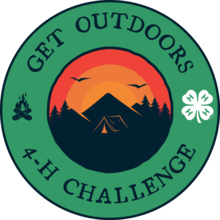Sign up for the Get Outdoors 4-H Challenge! Each month you will receive a challenge with activities and information to get outdoors. The challenge begins in February. Youth in grades K-13 and adults are welcome to participate.
How it works
About a week after you register, you'll receive an email with access to your individual tracking sheet. You will use this tracking sheet to log your activities and challenges. Everyone who registers will also receive a Get Outdoor 4-H Challenge sticker in the mail.
There will be prizes along the journey for those who complete challenges and benchmarks.
Registration is required. Please register each youth and adult separately.
Contact
Nicole Pokorney, 4-H youth development educator, pokorney@umn.edu


